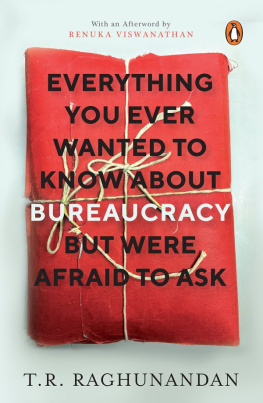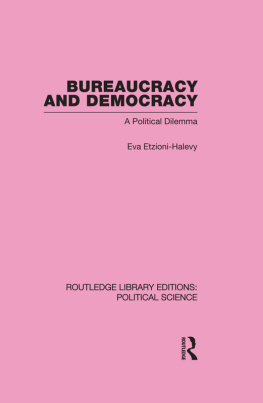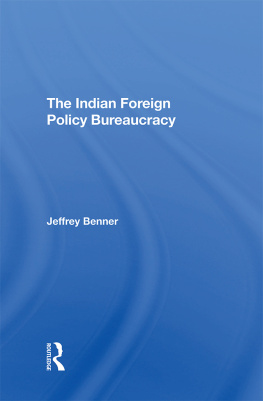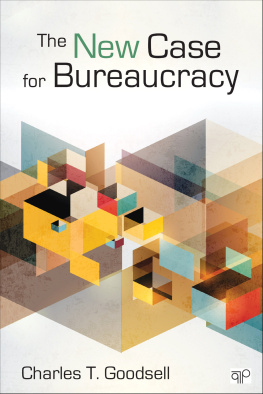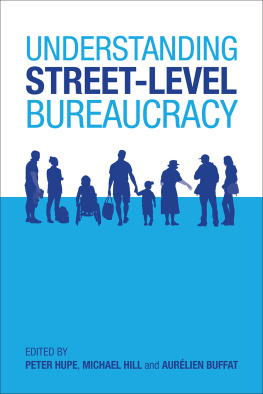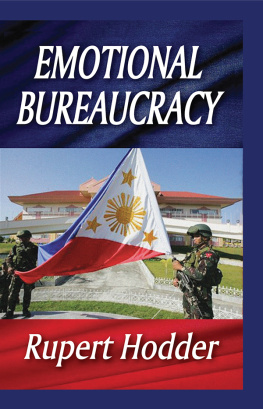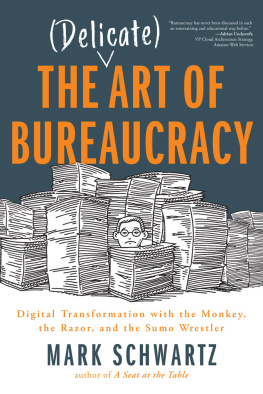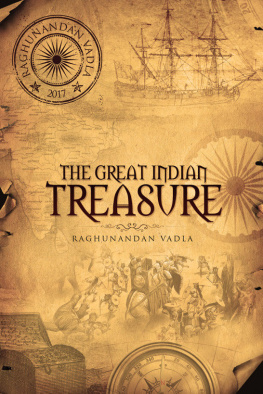T.R. Raghunandan is a consultant in decentralization, anti-corruption and heritage conservation. Formerly in the Indian Administrative Service, he quit in 2010, after twenty-seven years, to concentrate on his pet passions of strengthening local democracy and governments, and working on anti-corruption. He currently handles several national and international assignments, including serving as adviser to the Accountability Initiative of the Centre for Policy Research, New Delhi, and adviser to Login Asia, a network of practitioners in decentralization from countries in South, central and South East Asia. He is an avid scale model maker, industrial heritage archivist, steam railway enthusiast and classic automobile restorer. He lives in Bengaluru with his wife, Aditi.
Advance Praise for The Book
In this incisive account, T.R. Raghunandan captures the intricate details of bureaucracy with amazing insight. He sprinkles several anecdotes in his book that make this journey through the corridors of power a fascinating trip for all. In Chapter 3, How to Get into the Civil Services, he carries readers through the rigorous procedure of selection that is spread over a year. He touches upon controversial issues such as posting and transfer of government functionaries, their promotions and ambitions, and the much-debated issue of Generalist versus Specialist. In sum, an engaging, brilliant read, brimming with sparkling humour. Raghunandan deftly decodes bureaucratic jargon, culture and processes to present a comprehensible and intelligible script on the Indian bureaucracyAmitabh Kant, CEO, NITI Aayog
A trenchant appraisal of the elite echelons of Indias civil services by a highly perceptive insider. It stops just short of being cynical and provides valuable insights into how bureaucracy works, and why it faltersNavtej Sarna, author and former ambassador of India to the USA
Tempered throughout with self-deprecating humour, heres an unusual insight into the bureaucracy observed from within: attentive, honest, funny, thoughtful and in the end hopeful. For those frustrated with Indias slothful bureaucracy, this account humanizes it without ignoring its wartsHarsh Mander, human rights and peace worker, and author
This illuminating and often humorous book takes us deep into the heart of the Indian state. With his trademark savvy, intelligence, and wit, T.R. Raghunandan brings the black box of the bureaucracy to lifeMilan Vaishnav, senior fellow and director of the South Asia Programme, Carnegie Endowment for International Peace, Washington, DC
This book is an insightful insiders account of the functioning of the elite bureaucracy in India. It is lucidly written and eminently readable. The anecdotes are often hilarious and keeps the reader engagedM. Govinda Rao, former director, NIPFP, and member, Fourteenth Finance Commission
To
Aditi, Ishaan and Ammachy
1
Overview or Lay of the Land
One of the first things that I did when I sat down to write this book was to google the meaning of the word bureaucracy. One needs some impetus to write a book and googling is the mental equivalent of leaning a scooter so that precious petrol flows into the carburettor. The Cambridge dictionary websiteas good a place as any on the Internet to search for the meaning of wordsdefines bureaucracy as a system for controlling or managing a country, company or organization that is operated by a large number of officials employed to follow rules carefully. I would narrow down that meaning for the purposes of this book to the people who run the government, excluding the elected representatives. There is no disagreement with the lots of people part of the definition. A wait at the Central Secretariat Metro Station in Delhi during rush hour will leave nobody in doubt that the Indian bureaucracy comprises lots and lots of people.
Whatever its faults, the Indian bureaucracy cannot be accused of bias when it comes to confounding those who have to deal with it. Veteran insiders who return to it with their petitions after retirement are as clueless as freshly minted supplicants about how it functions. While autobiographies of bureaucrats extract plenty of amusement from the mysterious ways of the bureaucracy, such reminiscences have little practical value; readers gain no practical tips from them on how to coax government officers to actually function. Outsiders in any case have little knowledge of who is responsible for what and why, or how to navigate that critical proposal through the treacherous shoals of a secretariat or directorate.
At the top of the bureaucracy heap is the fast-tracked elite civil servant, who belongs to a group of generalist and specialized services selected through competitive examinations. While no one of the several services that comprise this exclusive club is officially considered superior to the other, the Indian Administrative Service (IAS) is generally regarded as the most powerful and, therefore, the most desirable by aspirants. The aura of the IAS has remained intact over the years. Their tribal loyalties, handed from one generation to the other like a sacred fire, ensure preferential access to positions from where they not only construct policies for the country, but also develop rules, precedents and conventions that set them apart from the rest. Therefore, the IAS still remains the primary aspirational goal of all those who take a shot at the competitive examination year after year.
Yet, like every elite and powerful group, the IAS vehemently denies the concentration of any power in it. We have no powers, saar. We have to do whatever politicians ask us to do, they say, shaking their heads ruefully. The most one can extract from them is a reflection that things are no longer like they were before, a refrain that has been heard so often over the past seventy years that it has no meaning whatsoever.
This book aims to deconstruct the structure of the bureaucracy and how it functions for the understanding of the common person. For that purpose, it focuses on the IAS, but not entirely; it uses the IAS as an entry point to describe how the government does and does not function. While the book wont be a do-it-yourself manual of dealing with the bureaucracy, it hopes to replace the anxiety that people feel when they step into a government office with a healthy dollop of irreverence. Lack of awe, bordering on civilized disrespect, is a most effective learning tool. If a reader, when confronted with a gravely articulated excuse by a government officer, is able to instantly discern it as an insane one, the purpose of this book would have been achieved.

